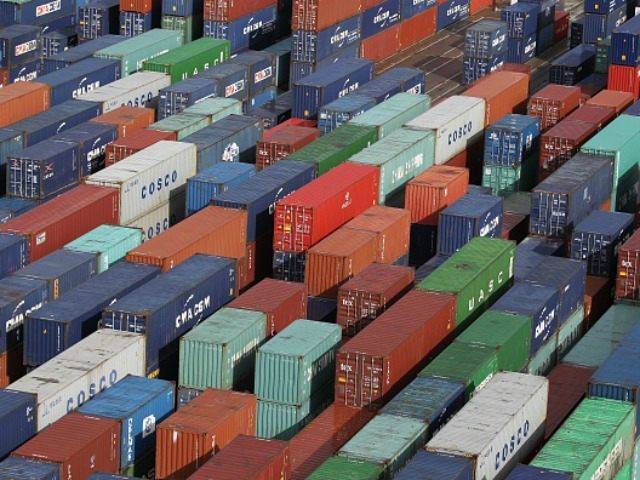The usually reserved Royal Bank of Scotland (RBS) just told its clients that with emerging market trade as measured by the cost of ocean shipping plunging since August by 67 percent, 2016 will be a “cataclysmic year” and investors should “sell everything.”
RBS Chief of Strategy Andrew Roberts on January 12 said, “Sell everything except high quality bonds,” because “falling oil, volatility in China, shrinking world trade, rising debt, weak corporate loans and deflation” are cataclysmic events.
RBS is an expert in cataclysmic financial issues. By accumulating $3.5 trillion of assets and $3.3 trillion of liabilities, RBS became the largest bank in the world in 2008. In what was considered a recognition of their dominance in emerging market lending, RBS was able to buy a 10 percent of the Bank of China for $3 billion in 2005.
The 2008 Financial Crisis quickly devastated emerging markets. The price of RBS stock, as the top player in the business, dropped by 97 percent. The bank became so insolvent that the British government was forced to invest over $64 billion in three separate bailout efforts. By December 2009, the UK owned 84.4 percent of RBS.
The Royal Bank’s losses would have been even bigger, except the Chinese government quickly bailed out their economy with a 2008 to 2009 monetary stimulus that adjusted for the economy’s size was twice as big as the U.S. stimulus, and was injected twice as fast.
The result was an epic economic boom in Chinese exports, real estate prices, and wage rates. For commodity-based economies across the planet, China’s “economic miracle” created a worldwide demand that drove the commodity price index—including energy, materials, food, and raw materials—up by 50 percent.
But rather than growing by compounded double digit rates due to improved corporate competitiveness, China’s economy grew from 2009 through 2014 by quadrupling the nation’s total debt from $7 trillion to $28 trillion at the end of 2014.
According to McKinsey & company, China’s boom and the corresponding boom in commodity-based emerging markets powered a $57 trillion growth in worldwide debt since 2007. At 282 percent, China’s debt as a share of GDP is now larger than that of the United States or Germany.
“Three developments are potentially worrisome: half of all loans are linked, directly or indirectly, to China’s overheated real-estate market; unregulated shadow banking accounts for nearly half of new lending; and the debt of many local governments is probably unsustainable, according to a McKinsey & Company 2015 study.
But despite the Chinese government continuing to publish rosy economic reports claiming the country is still achieving a 7 percent compounded growth, Diana Choyleva of Lombard Street Research warned in mid-2014 that China was in a “hard landing.”
She calculates that with monetary inflation responsible for rising labor and manufacturing costs, China’s 2014 real annual growth averaged only 4.4 percent, versus the official government rate of 7.3 percent. Despite new stimulus in 2015, GDP fell to 2.3 percent for the year.
The best indicator for predicting the scale of the looming China and emerging market losses is the direction of the Baltic Dry Index (BDI), which measures the change in the cost of chartering ocean-going vessels to move bulk raw materials, such as metals, grains and fossil fuels, through the 23 major worldwide shipping lanes.
Since August, the BDI has plunged 67 percent, from 1,222 to a historic all-time-low of 402. Since its all-time-high of 11,411 in May 2008, the BDI is down by -96 percent.
Despite an early 100-point rally in the Dow Jones Industrial Average on January 13, stocks tanked by 365 points at the close. Although stock losses are painful, investors can still “sell everything.”
The real cataclysmic risk is that banks like RBS, which lent trillions of dollars to China and the emerging market, cannot sell any of their loans. With the Baltic Dry Index dropping by about two-thirds over the last 5 months, the world is on brink of a banking crisis.

COMMENTS
Please let us know if you're having issues with commenting.